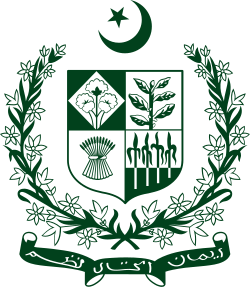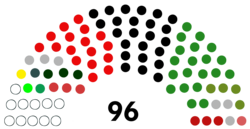| ||||||||||||||||||||||
54 of the 104 seats in the Senate 53 seats needed for a majority | ||||||||||||||||||||||
|---|---|---|---|---|---|---|---|---|---|---|---|---|---|---|---|---|---|---|---|---|---|---|
| ||||||||||||||||||||||
 Results by province | ||||||||||||||||||||||
| ||||||||||||||||||||||
 |
|---|
Senate elections were held in Pakistan on 2 March 2012. Fifty-four of the 100 seats in the Senate were up for election with the winning candidates serving six-year terms. [1]



